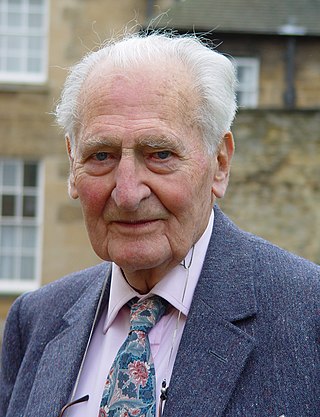The Treasurer of the Household is a member of the Royal Household of the Sovereign of the United Kingdom. The position is usually held by one of the government deputy Chief Whips in the House of Commons. The current holder of the office is Marcus Jones MP.

The Keeper or Master of the Rolls and Records of the Chancery of England, known as the Master of the Rolls, is the President of the Civil Division of the Court of Appeal of England and Wales and Head of Civil Justice. As a judge, the Master of the Rolls is second in seniority in England and Wales only to the Lord Chief Justice. The position dates from at least 1286, although it is believed that the office probably existed earlier than that.

The Buchanan Medal is awarded by the Royal Society "in recognition of distinguished contribution to the medical sciences generally". The award was created in 1897 from a fund to the memory of London physician Sir George Buchanan (1831–1895). It was to be awarded once every five years, but since 1990 the medal has been awarded every two years.

The British Poet Laureate is an honorary position appointed by the monarch of the United Kingdom, currently on the advice of the prime minister. The role does not entail any specific duties, but there is an expectation that the holder will write verse for significant national occasions. The origins of the laureateship date back to 1616 when a pension was provided to Ben Jonson, but the first official holder of the position was John Dryden, appointed in 1668 by Charles II. On the death of Alfred, Lord Tennyson, who held the post between November 1850 and October 1892, there was a break of four years as a mark of respect; Tennyson's laureate poems "Ode on the Death of the Duke of Wellington" and "The Charge of the Light Brigade" were particularly cherished by the Victorian public. Four poets, Thomas Gray, Philip Larkin, Samuel Rogers and Walter Scott, turned down the laureateship. Historically appointed for an unfixed term and typically held for life, since 1999, the position is for a term of ten years.

The Lieutenant of the Tower of London serves directly under the Constable of the Tower. The office has been appointed at least since the 13th century. There were formerly many privileges, immunities and perquisites attached to the office. Like the Constable, the Lieutenant was usually appointed by letters patent, either for life or during the King's pleasure.

Justice of the Common Pleas was a puisne judicial position within the Court of Common Pleas of England and Wales, under the Chief Justice. The Common Pleas was the primary court of common law within England and Wales, dealing with "common" pleas. It was created out of the common law jurisdiction of the Exchequer of Pleas, with splits forming during the 1190s and the division becoming formal by the beginning of the 13th century. The court became a key part of the Westminster courts, along with the Exchequer of Pleas and the Court of King's Bench, but with the Writ of Quominus and the Statute of Westminster, both tried to extend their jurisdiction into the realm of common pleas. As a result, the courts jockeyed for power. In 1828 Henry Brougham, a Member of Parliament, complained in Parliament that as long as there were three courts unevenness was inevitable, saying that "It is not in the power of the courts, even if all were monopolies and other restrictions done away, to distribute business equally, as long as suitors are left free to choose their own tribunal", and that there would always be a favourite court, which would therefore attract the best lawyers and judges and entrench its position. The outcome was the Supreme Court of Judicature Act 1873, under which all the central courts were made part of a single Supreme Court of Judicature. Eventually the government created a High Court of Justice under Lord Coleridge by an Order in Council of 16 December 1880. At this point, the Common Pleas formally ceased to exist.
Thomas Poynings, 1st Baron Poynings was an English soldier and courtier.
Edward William Grinfield (1785–1864) was an English biblical scholar.
Sir Thomas Perrot was an Elizabethan courtier, soldier, and Member of Parliament. He campaigned in Ireland and the Low Countries, and was involved in the defence of England against the Spanish Armada. He was imprisoned several times, on one occasion to prevent a duel with Sir Walter Raleigh, and on another occasion because of his secret marriage to Dorothy Devereux, a Lady-in-waiting to the Queen, and sister of the Queen's favourite, the Earl of Essex. Perrot's only daughter, Penelope, married Sir Robert Naunton, author of Fragmenta Regalia, which claimed that Perrot's father, Sir John Perrot, was an illegitimate son of Henry VIII.





